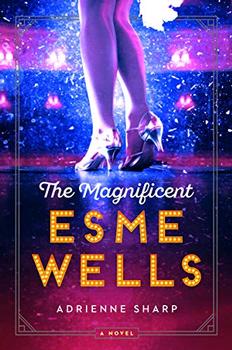Book Club Discussion Questions
In a book club? Subscribe to our Book Club Newsletter and get our best book club books of 2025!
For supplemental discussion material see our Beyond the Book article, The Flamingo Hotel and our BookBrowse Review of The Magnificent Esme Wells.
Please be aware that this discussion guide will contain spoilers!
- What particular version of the American Dream is suggested by young Hollywood or Las Vegas?
- What's relevant and important about the historic time in which the novel is set?
- Consider Esme's parents, Ike Silver and Dina Wells. What is each of them like? What's the nature of their relationship? What draws them to or repels them from each other?
- In what ways are Ike and Dina good parents or not? How does the world they create for Esme affect her as she grows up? What are Esme's biggest challenges as a girl?
- At 16, Esme realizes that "the transition from girlhood to womanhood turned on a pivot. One day you were a child and then, all at once, you weren't." What was the determining moment for her? In what ways is such a profound difference in status exciting or problematic?
- What is it about "the movies," that is so powerful? In what ways are the products of Hollywood—imagination, adventure, and make believe—valuable? In what ways might they be harmful, taken too far?
- What, as Esme herself wonders, is it "about the public and about Hollywood that so liked the spectacle of mobsters"? What distinguishing traits existed in Benny Siegel? Mickey Cohen? Nate Stein
- What were the limited roles allowed to women in the worlds of Hollywood and Las Vegas? What harm results from such inequality? In what ways does a similar dynamic still exist or not in the film and entertainment industries? Why is this so?
- What made Las Vegas so successful and popular, despite the fact that "the house always won"?
- Considering Esme's relationship with Nate Stein, and her eventual stardom as a showgirl, how much did she remake herself or not from childhood?
- During one of her more risqué performances, Esme realizes that her body is not entirely her own, but "a tool, separate from me, an object I manipulated to entertain." How did this relationship with her own body get created? How does such a relationship affect her physical and psychological health?
- What explains Esme dramatic decision to cut off all her hair? What's implied by such a gesture? What moment from her childhood does it echo?
- What personal and cultural implications are presented by the ominous image of reveling casino goers or, near the end of the novel, Esme sitting alone, watching atomic bombs being tested far across the Nevada desert?
- Esme eventually realizes that, in addition to the stark threat of criminals like Nate Stein, "something was wrong with [her] father too." What does she mean? In what ways was Ike different from or better than the mobsters? What might it mean that, as Nate Stein tells her, Ike was always "small-time"?
- After so much personal trauma and reckoning, Esme mentions "all the dirty radiant light." In what ways is such a paradoxical image apt for Las Vegas? For Esme? For life?
- What might the future hold for Esme Wells?
Unless otherwise stated, this discussion guide is reprinted with the permission of Harper.
Any page references refer to a USA edition of the book, usually the trade paperback version, and may vary in other editions.
